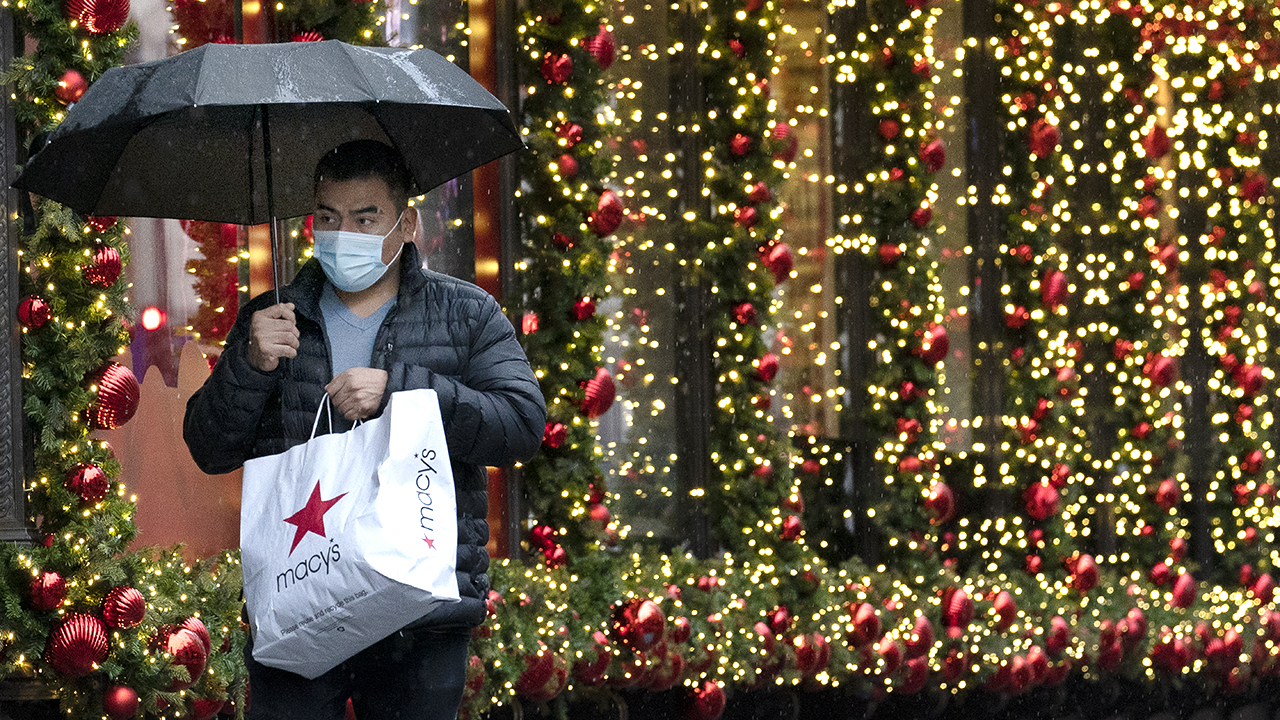For America's economy this winter, a COVID freeze and then a vaccine thaw
The beginning of winter will be miserable for the U.S. economy, but things could be looking much brighter by March
With a worsening Covid-19 crisis sending a new wave of caution across the country, the beginning of winter will be a dark time for the U.S. economy. But by the time winter draws to a close, it could be rebounding more swiftly than seems imaginable.
Economists trying to forecast what the first quarter will look like have a seemingly impossible task. First, they need some sense how bad this latest surge in Covid cases might get. Second, they need to know what measures people and state and local governments will take in response and how that might affect spending. Third, they need to weigh how much relief will be coming from the federal government. Finally, and most hopefully, they need to consider how much better things will look toward the end of the quarter as the weather improves and the vaccine rollout gains steam.
62% OF SMALL-BUSINESS OWNERS FEAR PANDEMIC'S WORST IS YET TO COME
Most forecasters believe growth will be weaker in the first quarter than in the current quarter and that gross domestic product will remain significantly below its year-earlier level. But with so many moving parts to consider, some are looking for only a modest slowdown while others believe that GDP will register a contraction, sending the economy into a double dip recession.
What might actually be more important is not what the first-quarter GDP reading -- an average of the economy's performance in the first three months of the year -- looks like, but the economy's trajectory over the course of the quarter. On that point it is possible to hazard a guess: Really bad, and then really good.
Really bad, because of what is happening with Covid. Over the week ended Wednesday, 1.51 million new cases of Covid had been confirmed in the U.S., according to Johns Hopkins University, which was nearly twice as many as in the first week of November. And 17,988 people died from the disease, making it the pandemic's most deadly period.
NUMBER OF US HOMEOWNERS SEEKING TO DELAY MORTGAGE PAYMENT RISES TO HIGHEST LEVEL IN MONTHS
Those figures are primed to worsen in the weeks ahead as people travel for the holidays, spend more time indoors because of the colder weather, and because the sheer number of people who now have the disease leads to new infections. The ensemble model employed by the Centers for Disease Control and Prevention, which combines forecasts from dozens of different epidemiological models, predicts that in the week ended January 9, there will be 1.76 million new Covid cases and 21,608 deaths.
Already there are indications that the new pandemic wave is weighing on spending. On Wednesday, the Commerce Department reported that retail sales in November fell 1.1% from a month earlier.
GET FOX BUSINESS ON THE GO BY CLICKING HERE
One silver lining for the economy is that, even though the Covid numbers are far worse than they were in the spring, the pandemic won't be as economically damaging. "There have been behavior changes that have been taken on that allow the economy to withstand restrictions and the rise of Covid," says Bank of America economist Michelle Meyer.
Still, such adaptations have their limits. The outdoor dining arrangements that many restaurants have put together don't work so well when it is freezing, for example. And Covid fatigue -- people tiring of safety measures -- might temporarily help the economy while leading to more damage down the line.
But as the winter wears on, Covid's grip will likely lessen, and the pace of economic growth could transition to really good. There are a number of reasons why.
First, as the calendar flips to 2021, any increase in Covid cases associated with Thanksgiving and the December holidays will diminish. By March the weather will begin getting warmer again, allowing people to do more outside. New measures, such as improved testing regimens and the mask mandates that President-elect Joe Biden says he will appeal for, could drive cases lower. And last, but not least, the combination of the number of people who will have already had Covid, plus the millions of Americans who will likely have been vaccinated by the end of the quarter, could start to mitigate the disease's spread.
CLICK HERE TO READ MORE ON FOX BUSINESS
As a result, says UBS economist Seth Carpenter, "there will be a big turnaround in behavior." A wide array of services businesses that have borne the brunt of the crisis could see demand return. People who have been vaccinated may finally take that flight to see family. More schools will return to in-person learning, freeing time for parents to work. And more broadly, seeing the Covid numbers fall, and knowing that with vaccines it is no false dawn, will prompt people to spend more freely. Businesses, seeing where things are heading, will hire and spend in anticipation of customers' return.
Unfortunately the pandemic won't have fully passed, and the extent of improvement in Covid cases by the spring will depend crucially on actions taken between now and then, points out Johns Hopkins epidemiologist Caitlin Rivers. There will likely still be millions of people out of work, and many Americans' finances will be in horrible straits. But things will look better than they do now, and that will be a start.




















